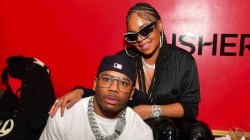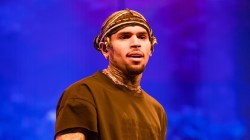It has been nearly five years since the Black Mafia Family was indicted for one of the biggest cocaine distribution networks ever witnessed. Strangely, Hip Hop music doesn’t seem to care.
In 2010, Rick Ross’ biggest hit had the Miami rapper using his chorus to say, “I think I’m Big Meech,” referring to one of BMF’s founders, Demetrius “Big Meech” Flenory, who presently sits behind bars for the next two decades. Ross’ collaborator and label-mate Young Jeezy also has paid tribute to Big Meech, in a back-and-forth between the two rappers who have made millions off of cocaine sales accounts in their rhymes. Since Paid In Full, emcees have rhymed about “blowin’ money fast,” but what really happened to BMF?
Author Mara Shalhoup answers that question with her book BMF: The Rise and Fall of Big Meech and the Black Mafia Family. The veteran crime and court reporter from Atlanta pulls her talents to in-depth coverage on a subject she’s written about for the last decade. Through her research and very firsthand color, we understand why anybody could dream to be Big Meech. We also quickly learn why it didn’t last, as the book captures the dissonance between Meech and his brother Terry and the polar character traits they carried.
In this interview with HipHopDX, Mara Shalhoup – who is also Editor-In-Chief of popular Atlanta website CreativeLoafing.com, explains the correlation between BMF and Hip Hop. She weighs in on Young Jeezy’s relationship with the organization, and just how she was able to find a balance in telling this story – from what’s read in the newspaper, and what’s said in the Rap lyrics.

AD LOADING...
HipHopDX: One of the things I like about BMF: The Rise and Fall of Big Meech and the Black Mafia Family is how you appeared to write it without bias. You don’t condemn them, or idolize them, you just reveal. So I want to begin in asking, Black Mafia Family is very young, it’s very out there in the streets, in the media and whatnot. For you to tell this story without bias, did you have to talk yourself into it a bit? I’ve always heard that even mentioning those three letters: BMF comes with a stigma.
Mara Shalhoup: Oh yeah. I’ll speak to the bias thing first, ’cause it’s easy to come at it with a sympathetic view towards either side. It’s also easy to vilify to drug dealers on the one side, and give due props to law enforcement. I wanted to play it extraordinarily safe. I think it’s the best treatment in all the books I admire – tell it like it is and let people form their own opinion. The things I do look for, and I hope they do come across, is sort of the unexpected similarities between the law enforcement organizations and the criminal organizations. That to me is more interesting to me than trying to create heroes or villains.
DX: You start the book at an interesting place. I love the fact that a character that the Hip Hop media has been writing about, [longtime Diddy bodyguard] Wolf is involved in setting the stage to understand BMF’s power. We see and understand what an evening with Big Meech was like at the height of his rise in Atlanta. Wolf is an extension of Hip Hop-meets-crime, coming from the Bad Boy/Death Row drama. All this said, how much do you think BMF was a continuation of what we saw in the 1990s with people like Wolf and Suge Knight and J. Prince and the music people we read about in the back of newspapers?
Mara Shalhoup: It’s interesting, because it is a continuation. It was Big Meech’s aspirations to be like a Suge Knight or even a Sean [“Diddy”] Combs, though there’s much different backgrounds. He had almost all of the fame and success before he had the roster. That’s what makes him different from those characters.

AD LOADING...
DX: A reversal.
Mara Shalhoup: Yeah. [Big Meech] gets caught up in these crimes. It’s similar to the crimes you saw with Wolf [such as] the [1999] Times Square shooting, and the [1995 Jermaine Dupri party] shooting in Atlanta, which he was obviously implicated in both of those. With BMF, you have a much more sinister reputation around this crew – not that Suge Knight didn’t have a sinister reputation, but it was this thing that was very murkily a Hip Hop label but very obviously a criminal enterprise. It was that first, in most people’s eyes, whereas Death Row [Records] was a very successful label.
DX: It’s a sidebar, but you’re the one to ask: How do you think Big Meech is reacting to what’s happening and what’s happened this year, between Rick Ross putting his name in the chorus of a massive hit song, and then Young Jeezy arguably taking umbrage with that? I mean, he’s got his celebrity.

AD LOADING...
Mara Shalhoup: He’s sitting behind bars for at least 25 more years, and he’s been locked up for five at this point. Even if he gets out for good behavior, it’s roughly two more decades. So I think that sort of any recognition, especially from [the Hip Hop] vantage point is very welcomed and somewhat exciting for him. I think he thrives on attention, and he’d be the first to say that, based on his behavior in the clubs and that sort of thing. So I think to continue to get the kind of attention he’s getting is a good thing for him. The Rick Ross [controversy] with [Young] Jeezy coming back with his [version of “The Real Blowin’ Money Fast (BMF)” ], I have this vision of Big Meech, sitting back, loving the back and forth in a way. Who knows.
], I have this vision of Big Meech, sitting back, loving the back and forth in a way. Who knows.
DX: The book is cinematic. I can see so many of these club nights, these conversations, these deals being brokered. How much of the fact that there is a “rise and fall” comes down to the fact that Meech and his brother T had very different views on how to act with this money?
Mara Shalhoup: I think that they were each others’ downfall in a way. I do think their very separate personalities helped contribute to their demise. Once they got the Feds’ attention – and in a way, taunted them, [it expedited the Flenory brothers being separated]. I hope it makes it clear in the book, you have the one brother who’s extremely flashy, but also very careful – they both were very careful. I think the thing that protected [Meech] was that he was more careful than his brother about talking on the phone. You have this very behind-the-scenes guy in T who made the mistake of talking a lot on the phone. So you combine [Meech’s] flashiness with some of the wire-tap stuff on [T] and [together, they brought each other down] when they combined forces.
DX: Again, this book is “the rise and fall.” People have always told me that BMF was so successful because of its rich code of loyalty. You capture that in so many actions in the book, whether business or pleasure. With its two founders at odds with the investigation, how much do you think that core loyalty has been compromised?

AD LOADING...
Mara Shalhoup: It was compromised much more on Terry’s side of the organization. They split round-about in 2003, and I think at that point, the Feds weren’t even aware that they were running very distinct and separate crews. But they were. They had the same supplier still. When the indictment came down, and this is very obvious from court records, federal investigators believed that every witness they lined up on Terry’s side was akin to a witness for Meech, and really, they weren’t. They made that realization shortly after. They lined people up, but they were all people in Terry’s organization. So they couldn’t really speak much to how Meech ran his organization, or prove if he ran that organization. There was one guy that still worked for both brothers; he was the star witness. He was still stronger on evidence against Terry than Meech.
So yeah, people start to fall. One falls, and then they all fall. With 20 years behind bars, the easier that code of silence becomes easier to break. Yeah, in the end, the evidence against Meech was not so much his crew turning – ’cause nobody [in the inner-circle] of his crew really turned, it was more the strength of the case against Terry couple with [Meech’s] lifestyle.
DX: So in a lot of ways, that loyalty is still in tact – at least on paper?
Mara Shalhoup: Correct.

AD LOADING...
DX: How challenging was this for you to research, given that tight-lipped community?
Mara Shalhoup: I’m a crime writer and a court investigative writer by trade, and had been for about 10 years when I started working on the book. That was an area I was very comfortable with. Now living in Atlanta in the middle of this insanely great Hip Hop scene also, those two worlds [converged]. It was this perfect storm. I’m really comfortable spending lots and lots of hours at a courthouse, digging through files and working the federal records system. That to me is so fun, every time a new document pops up that might yield one detail that might push this one scene forward. It’s tedium, for sure. But it’s something I’ve done for a while and something I enjoy doing.
On the other side is the color. Some of that does come from records, ’cause you have affidavits from people describing the kind of partying. But I also have been to these [venues].
DX: So you yourself are a primary source?

AD LOADING...
Mara Shalhoup: Sure. And knowing people who work in the scene, and work in the nightlife industry and that kind of thing helps of course. Plus, in the case of BMF, having them doing these videos of themselves – these promotional videos [laughing], a lot of that stuff was set in Miami, where I obviously spent less time. [My questions] were filled out with these videos and stuff.
DX: BMF shows up in Atlanta around the same time that Atlanta becomes this artistic and musical Mecca for Hip Hop. How much are those parallels coincidence and how much of it was by design?
Mara Shalhoup: [BMF] were the big cocaine distributors in Atlanta, the high-level ones, who brought in all the cocaine that Atlanta saw during that era into the city. They were the guys, and it’s a big cocaine city, so it was quite a bit of cocaine that they brought in here – and other places. If you were black, into Hip Hop and had that much money while this kind of talent was coming out of the city, you definitely were just gonna be involved, whether it was being in the clubs and creating the kind of mood and “making it rain,” you were gonna be in the middle of that party. And [by virtue of that], you’re gonna be friends with these guys – a lot of the rappers. By extension, at least in Meech’s case, you’ll start helping them secure Lamborghinis for videos and medallions and that kind of stuff. It’s almost like the patron of the arts.

AD LOADING...
DX: I noticed that the book talks a lot about Young Jeezy. It’s always universally agreed upon that Big Meech took Young Jeezy under his wing, but at different times, Jeezy has conveniently distanced himself from BMF in interviews, and then he’ll go make a song like the one you mentioned earlier. From your research, do you have a firm belief, as far as the book is concerned, on how close Jeezy was to this circle?
Mara Shalhoup: Again, on one level, going back to the description of anyone with that amount of money and interest in Hip Hop in Atlanta at that time would be surrounded by these rappers. When Meech would throw a party, of course Jeezy’s gonna be on stage, surrounded by the five most senior people in BMF. They’re right there. That’s a pretty rare relationship; most people aren’t gonna be able to get that close. Jeezy wasn’t quite the star he is now, but he was pretty hot in Atlanta, and about to be hot nationwide. So there’s that, for sure. Then there’s one part of the book where there’s the only allegation from every document that is public record and some that even the public can’t access, and the only thing that ever ties Jeezy to them in any kind of criminal way was a statement made. I was sitting in [the] court when this happened. A convicted murderer was testifying in the federal case against BMF’s third-in-command, and made a statement that his job was basically to set out the cocaine packages – 10 kilos or so in duffel bags, for [high-level distributors]. He was naming who his customers were – people who picked up BMF coke. He named Jeezy as one of them. [Young Jeezy] never got indicted. [I] talked to Jeezy’s attorney about this; it’s kind of just information in a vacuum, coming from somebody who is speaking under oath, but is also a convicted murderer. It’s tricky. You have to do a balancing act with that kind of information. So I don’t know if he was really tied in.
DX: It’ll add to the mystique. What do you think will happen over these next 20 years with both leaders incarcerated?
Mara Shalhoup: There’s a couple of interesting things. On one hand, the federal government was extraordinarily effective in knocking out the organization, as far as dismantling labs, taking every vehicle that was used. After the book [was in print], they actually nabbed one of their primary suppliers. The supply line is down. All the big things that made an organization of that size possible have been eradicated. Now there’s something interesting happening in Detroit. There’s a lot of people on the street level claiming BMF. BMF itself was only on the street level in Detroit by the time they moved into other cities. It makes sense that there’s this street level BMF.

AD LOADING...
DX: Full circle, this book is written without bias. What do you think Big Meech thinks of this book with his picture on the cover?
Mara Shalhoup: From all I can tell, I think he’s happy with the way he was portrayed in the book, and thinks it’s an accurate representation.
Purchase “BMF: The Rise and Fall of Big Meech and the Black Mafia Family” by Mara Shalhoup



